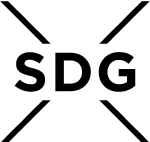Livelihood and skill development programmes run by public and development sector actors aim to counter the growing problem of unemployment across the world. However, enrollment in these programs and also benefits from these programs are not equally shared by all people. As an illustration, according to a UNDP Report–78% of the total workforce in Nepal came from only five ethnic groups (while Nepal has 102 ethnic groups according to census data).
Gender, sexuality, and disability are also bases for significantly varying outcomes. Till livelihoods and employment programs directly tackle diversity issues, workforces will also struggle with the lack of diversity and millions of people within certain identities will continue to miss out on income improvement opportunities and opportunities to escape the poverty trap.
The panel will deliberate on some important questions like-
- What is the existing data that exists around identity-specific enrollment in livelihood and skill development programmes?
- How can this be improved upon?
- What steps can the SDG ecosystem take to create truly inclusive livelihood and skill training programmes globally?
- What sources of funding, including government sources, philanthropic capital and commercial financing, can help in scaling such models?
Moderator for the session: Rym Keramane (Associate Partner, Dalberg Advisors) & Madjiguene Sock (Partner, Dalberg Advisors)
Speakers:
- Arman Ali (Executive Director, National Centre for Promotion of Employment for Disabled People)
- Dr Javaid Khan (Assistant Professor, University of Kashmir)
- Elena Bonometti (CEO, Tostan)
- Maha Keramane (Head of Social Business, BNP Paribas)

